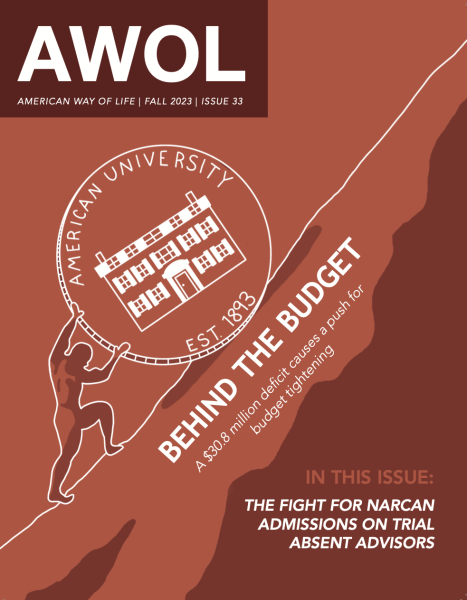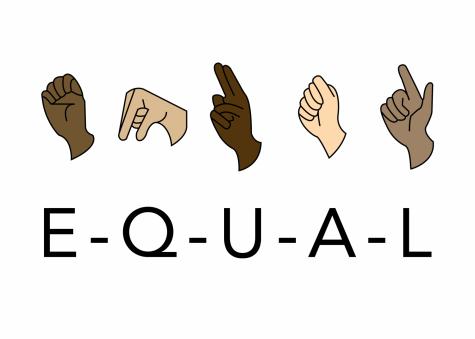Project HEAL and Greek Wellness Coalition discuss disordered eating

Content warning: Mentions of eating disorders and disordered eating
The conversation surrounding eating disorders continued last week on American University’s campus in honor of National Eating Disorder Awareness Week.
Over 30 million Americans have an eating disorder at some point during their lifetime, according to the National Association of Anorexia Nervosa and Associated Disorders. The AU Chapter of Project HEAL and the Greek Wellness Coalition’s event, “How to Help a Friend: Eating Disorders” discussed disordered eating and eating disorder symptoms and how to recognize them.
Eating disorders are mental health conditions with physical health consequences. They vary based on individual experience and include anorexia nervosa, bulimia nervosa, binge eating disorder, and otherwise specified eating disorders, which are eating disorders that do not meet diagnostic criteria for other illnesses.
“[Eating disorders] are the leading mental health illness and disproportionately affect college campus environments,” said Felipe Rangel, president of Project HEAL at AU and Vice President of Mental Health for the Greek Wellness Coalition.“That’s why I believe this club and this week is so important.”
The National Eating Disorder Association reports that people of color are significantly less likely to receive help for their eating disorders, despite having similar rates of diagnosable disorders.
“Eating disorders do not discriminate,” Rangel said. “It’s one of the most intersectional issues in existence and we should all open our minds to hearing about how we can do more to help ourselves and our friends and destigmatize the issue.”
In contrast to eating disorders, disordered eating describes a range of irregular eating behaviors which do not meet the diagnostic criteria for specified eating disorders.
“A lot of people in college suffer from eating disorders and we felt that it was important for their friends to have a basis of knowledge so that they can communicate with them,” Rangel said when asked about the workshop.
10 to 20 percent of women and 4 to 10 percent of men in college suffer from an eating disorder, according to the National Eating Disorders Association – with rates rising steadily.
The event taught students how to recognize symptoms of eating disorders and disordered eating in themselves and their peers, including a preoccupation with weight and food, frequent dieting, excessive exercise.
“To shift the conversation away from someone’s appearance to someone’s mental health and creating a culture of understanding is a big thing, but something that is very possible,” Rangel said.
Project HEAL and the Greek Wellness Coalition are working to address the many myths and misconceptions surrounding eating disorders.
“The biggest myth that exists is simply around the notion that [eating disorders] are uncommon,” Rangel said.
The National Eating Disorder Association reports that binge eating disorder is three times more common than anorexia and bulimia combined, making binge eating disorder the most prevalent eating disorder, contrary to popular belief.
“We can also work to dispel the misunderstanding around eating disorders that they are uniform and identical throughout,” Rangel said. “Not every eating disorder is bulimia or anorexia, and not everyone who suffers is either too skinny or too overweight. They affect people in a multitude of ways.”
To support the National Eating Disorder Association, the D.C. NEDA walk will be held on April 6th from 9- 11 am.
For more information, or if you or a loved one are struggling with an eating disorder or disordered eating, please visit these websites:
National Eating Disorder Association: https://www.nationaleatingdisorders.org/
Academy of Nutrition and Dietetics Eating Disorders: https://www.eatright.org/health/diseases-and-conditions/eating-disorders

I'm a Senior majoring in Public Health. My areas of interest include health equity, housing access, and criminal justice reform. I have always been a writer...











